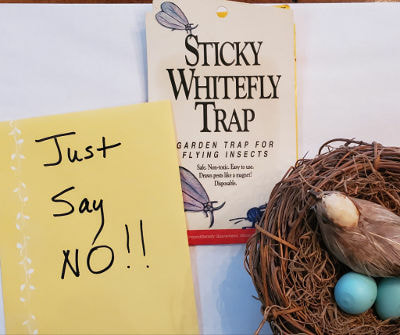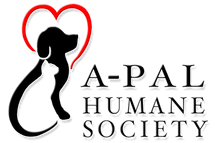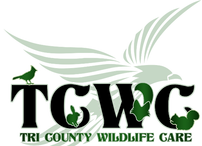Fly Strips and Glue Traps - Just Say No

Misuse of these may leave you laying on your back twitching like a dead cockroach! At the very least, they cause unnecessary suffering and frequently to unintended victims.
Glue traps or sticky traps are used to capture flying insects or rodents. None of us like living with insects or rodents, but this is cruel. Insects or animals caught in these traps struggle against the glue trying to escape. Eventually, they succumb to injuries, exhaustion, starvation or dehydration over the several hours or days it takes to die. These traps are indiscriminate. Birds, snakes, lizards and other small animals are also caught. Larger animals may get the traps stuck somewhere on their body and try to remove them resulting in loss of fur or skin.
The Centers for Disease Control reports several cases of misuse of fly strips containing 2,2-dichlorovinyl dimethyl phosphate, or DDVP (sold as Hot Shot No-Pest Strip or Hot Shot Bedbug Mattress and Luggage Treatment Kit and others). This chemical is highly volatile which allows it to diffuse through an enclosed space effectively. It emits vapors that will repel and kill insects within 1200 cubic feet for up to four months. This is an organophosphate that will overstimulate nerve fibers and muscles. It blocks the enzyme acetylcholinesterase, present in all animals’ (you are an animal, too) nervous systems which leads to tremors, paralysis and death. Using these products in kitchens and living rooms, closets and pantries is in violation of label directions and extremely dangerous to you, your children and your pets. Using them outdoors is pointless as they are intended for use in an uninhabited enclosed space.
Many times, small birds or bats who dine on insects instead get caught and do not have the strength to get free. They suffer injuries to wings, delicate skin, legs and feathers. Feathers are damaged and mangled from the glue. If not removed quickly, the animal will die and it wasn’t even the intended victim. Any animal stuck to a glue trap needs immediate medical attention. If you find an animal stuck to a glue trap, please call us immediately. Do not try to remove the animal from the trap. Sprinkling cornmeal over the visible part of the trap will prevent the animal from suffering further damage.
Never use glue traps, these are indiscriminate and inhumane.
Avoid poison as pest control as this results in unintended victims and often puts other wildlife in danger when they ingest a poisoned prey.
Tri County Wildlife Care, a local nonprofit started in 1994, is dedicated to the rescue and rehabilitation of our native wildlife and helping our community live in balance with wildlife. They envision a world where wildlife and people thrive together. For more information call (209) 283-3245, or visit pawspartners.org.
Glue traps or sticky traps are used to capture flying insects or rodents. None of us like living with insects or rodents, but this is cruel. Insects or animals caught in these traps struggle against the glue trying to escape. Eventually, they succumb to injuries, exhaustion, starvation or dehydration over the several hours or days it takes to die. These traps are indiscriminate. Birds, snakes, lizards and other small animals are also caught. Larger animals may get the traps stuck somewhere on their body and try to remove them resulting in loss of fur or skin.
The Centers for Disease Control reports several cases of misuse of fly strips containing 2,2-dichlorovinyl dimethyl phosphate, or DDVP (sold as Hot Shot No-Pest Strip or Hot Shot Bedbug Mattress and Luggage Treatment Kit and others). This chemical is highly volatile which allows it to diffuse through an enclosed space effectively. It emits vapors that will repel and kill insects within 1200 cubic feet for up to four months. This is an organophosphate that will overstimulate nerve fibers and muscles. It blocks the enzyme acetylcholinesterase, present in all animals’ (you are an animal, too) nervous systems which leads to tremors, paralysis and death. Using these products in kitchens and living rooms, closets and pantries is in violation of label directions and extremely dangerous to you, your children and your pets. Using them outdoors is pointless as they are intended for use in an uninhabited enclosed space.
Many times, small birds or bats who dine on insects instead get caught and do not have the strength to get free. They suffer injuries to wings, delicate skin, legs and feathers. Feathers are damaged and mangled from the glue. If not removed quickly, the animal will die and it wasn’t even the intended victim. Any animal stuck to a glue trap needs immediate medical attention. If you find an animal stuck to a glue trap, please call us immediately. Do not try to remove the animal from the trap. Sprinkling cornmeal over the visible part of the trap will prevent the animal from suffering further damage.
Never use glue traps, these are indiscriminate and inhumane.
Avoid poison as pest control as this results in unintended victims and often puts other wildlife in danger when they ingest a poisoned prey.
Tri County Wildlife Care, a local nonprofit started in 1994, is dedicated to the rescue and rehabilitation of our native wildlife and helping our community live in balance with wildlife. They envision a world where wildlife and people thrive together. For more information call (209) 283-3245, or visit pawspartners.org.

